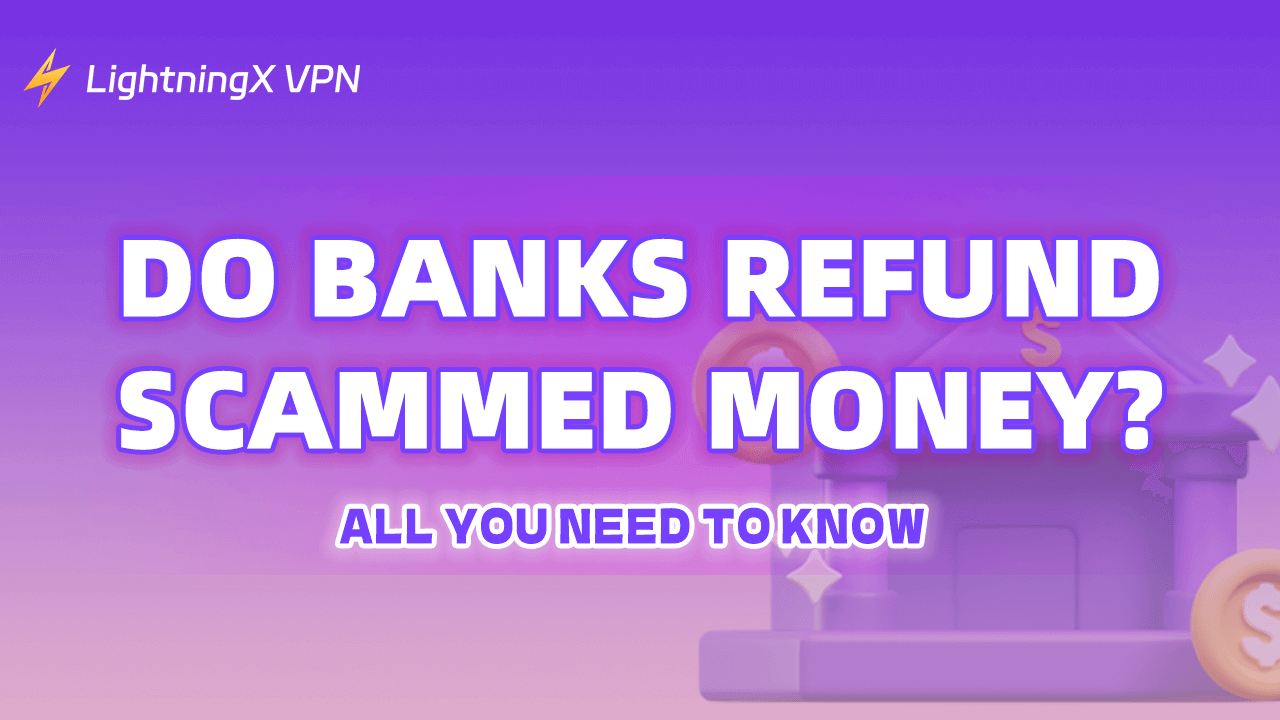Online transactions are as common as morning coffee, and the rise of financial scams is a reality that no one can afford to ignore. Do banks refund scammed money? The answer is not as direct as you might hope. It depends on several factors—how quickly you act, the type of the scam, and even your relationship with the bank.
Let’s dive into the details so you can better understand what to expect if you ever find yourself a victim of fraud.
Understanding the Types of Scams
First, it’s essential to recognize the different types of scams that target your money. Not all scams are treated the same by banks:
1. Phishing Scams
These involve fraudsters posing as legitimate entities. They will tempt you into revealing sensitive information like passwords or credit card numbers.
Getting a refund can be complicated if you unknowingly provide such information and the scammer uses it to steal money.
2. Unauthorized Transactions
If someone accesses your account without your permission and makes unauthorized purchases or withdrawals, this type of fraud is usually covered under your bank’s fraud protection policies.
3. Wire Transfer Fraud
Wire transfers are often irreversible, which makes them one of the riskiest types of transactions. Getting your money back is incredibly challenging if you authorize a wire transfer under false excuses.
To be more detailed, there are investment scams, social media scams, affection scams, and even charity scams and so on.
Bank Policies: Not All Refunds Are Guaranteed
Banks have varying policies regarding scammed money. These policies are often buried deep within the details of your account agreement.
Generally, banks are more likely to refund unauthorized transactions on credit cards compared to debit cards, as credit cards offer stronger consumer protections.
For debit card transactions, the timing of your report is crucial. If you report a scam within two business days, you might only be liable for up to $50 of the loss, according to the Fair Credit Billing Act (FCBA). However, if you delay, you could be responsible for a much larger amount—or even the entire loss.
The Refund Process: What to Do If You’re Scammed
If you’ve been scammed, the most critical step is to act fast:
1. Contact Your Bank Immediately
As soon as you notice an unauthorized transaction, call your bank’s fraud department, FTC, or any other agency that can help you, even the police. The quicker you report, the better your chances of getting a refund.
2. Provide All Necessary Documentation
Be prepared to provide evidence, such as transaction records and communication with the scammer. This will help the bank investigate your claim.
3. Understand the Investigation Period
Banks typically have a period during which they investigate the claim. During this time, they may issue a temporary credit to your account, but this doesn’t guarantee a permanent refund.
4. Follow-up: Persistence Is key.
Regularly follow up with your bank to check the status of your claim and ensure that it’s being handled promptly.
Factors That Influence Refunds
Whether or not you receive a refund can depend on various factors:
1. Timely Reporting
As mentioned, the sooner you report the scam, the better your chances. Delays can be costly.
2. Type of Transaction
Credit card fraud generally has better protection than debit card fraud. Wire transfers and direct bank transfers are the riskiest and hardest to reverse.
3. Bank’s Consideration:
Some banks may offer goodwill refunds, especially if you’re a long-time customer with a good history.
What If the Bank Denies Your Refund?
If your refund claim is denied, don’t lose hope:
1. level Up the Issue
Ask to speak with a higher-level manager within the bank. Sometimes, persistence pays off.
2. Seek Legal Advice
In severe cases, consider seeking legal advice or contacting consumer protection agencies, such as FTC and CFPB. Some scams may also be covered by insurance, so check if you have any applicable coverage.
3. Stir Public Pressure
Occasionally, taking your story public, whether through social media or consumer advocacy groups, can pressure the bank to reconsider its decision.
4. Prevention: the Best Defense
While knowing that your bank might refund scammed money is somewhat reassuring, the best approach is prevention.
5. Stay Wary
Regularly monitor your bank statements and set up alerts for unusual transactions.
6. Secure Your Information
Be cautious with your personal information. Avoid clicking on suspicious links or providing details over the phone unless you’re sure of the caller’s identity.
To be safer, use a VPN. LightningX VPN will hide your IP address with a virtual one and keep you invisible from potential hacking in the digital world.
7. Use Strong, Unique Passwords:
Ensure your online banking accounts are protected by strong, unique passwords, and set double authentication whenever possible.
8. Scan Malware and Viruses for Your Device
Possibly, you are scammed because of wrongly downloading virus files or malware. In this case, you should scan devices for such malicious files and delete them at once.
FAQs – Do Banks Refund Scammed Money?
1. Does Insurance Cover Scammed Money?
Some bank accounts or credit cards are followed by fraud protection or insurance that may include losses from scams. Please check your bank.
2. What Happens If the Scammer Is Caught?
They might be prosecuted and punished. However, that doesn’t ensure recovering all the scammed money.
Conclusion
This post help solve this question: Do Banks Refund Scammed Money? Trust your bank, but protect yourself. Banks can be your ally in recovering scammed money but are also risky. The responsibility for safeguarding your finances rests on both you and your bank—so trust, but be cautious, and always stay one step ahead of the fraudsters.


















